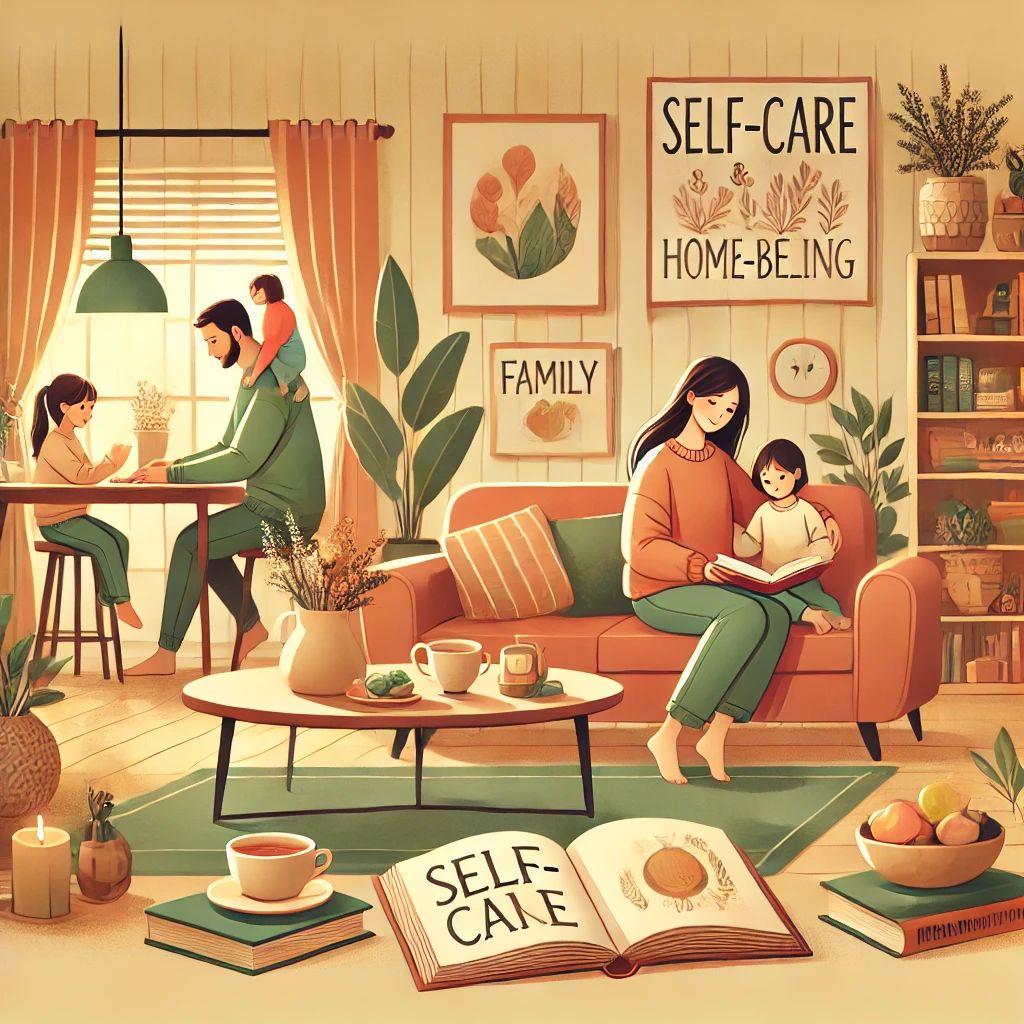
Why Self-Care and Family Care are Essential
Taking care of yourself and your family is foundational to leading a balanced and fulfilling life. Self-care is crucial not only for your own well-being but also for supporting the health and happiness of those around you. When you prioritize self-care and family care, you build a supportive environment that benefits everyone. From physical health to emotional support, here are some simple and effective ways to take good care of yourself and your loved ones.
1. Prioritize Physical Health
Physical health is essential for long-term well-being and resilience:
Encourage regular exercise: Whether it’s going for family walks, biking together, or having fun with a dance session at home, staying active as a family improves both physical health and emotional bonding.Eat nutritious meals: Make family meals an opportunity to enjoy wholesome foods. Incorporate fruits, vegetables, lean proteins, and whole grains to ensure everyone gets the nutrients they need.Stay on top of healthcare: Schedule regular check-ups for yourself and family members to monitor and maintain health. Preventive care, including vaccinations and screenings, is key to staying healthy.2. Create a Supportive Home Environment
A positive and nurturing home environment is essential for emotional and mental well-being:
Communicate openly: Encourage open communication and active listening within your family. Being able to share thoughts and feelings in a safe space builds trust and emotional resilience.Set boundaries and routines: Establishing routines, especially around meals, bedtime, and screen time, helps create structure and reduces stress. Set boundaries around personal time and respect each other’s need for space.Express gratitude: Practice gratitude as a family by sharing things you’re thankful for each day. Gratitude helps shift focus to the positives, improving mental health and overall happiness.3. Practice Self-Care for Yourself
Taking care of yourself is crucial, as it allows you to be more present and supportive for your family:
Make time for relaxation: Dedicate time each day to activities that help you unwind, such as reading, meditating, or practicing yoga. Self-care prevents burnout and keeps you feeling rejuvenated.Prioritize sleep: Good sleep is essential for both physical and mental health. Create a bedtime routine that helps you wind down, and ensure you’re getting enough rest to stay energized for yourself and your family.Seek support when needed: Don’t hesitate to reach out to friends, family, or professionals for support when you need it. Self-care includes recognizing when you need a little extra help.4. Promote Emotional Well-Being
Mental and emotional health are as important as physical health:
Model positive coping strategies: Show your family healthy ways to handle stress and emotions, whether through exercise, journaling, or talking openly about feelings. Teaching coping strategies helps build resilience in everyone.Encourage hobbies and creativity: Support each other’s interests and hobbies, whether it’s painting, playing music, or gardening. Creative activities provide joy and a positive outlet for emotions.Spend quality time together: Dedicate time to connect as a family without distractions. Play games, have a movie night, or cook a meal together. Quality time strengthens family bonds and provides emotional support.5. Teach Self-Care to Children
Instilling self-care habits in children from a young age prepares them for a healthy, balanced life:
Encourage independence: Let children take responsibility for age-appropriate tasks, such as making their bed or packing their school bag. Small responsibilities teach them to care for themselves.Model self-compassion: Show children the importance of being kind to themselves, especially in moments of failure or frustration. Self-compassion helps build a positive self-image and resilience.Teach healthy habits: Help children learn to prioritize exercise, healthy eating, and rest. Teaching these habits early encourages lifelong self-care practices.6. Foster a Sense of Community
Connecting with others outside your family supports mental well-being and builds a support network:
Engage with friends and neighbors: Spending time with friends, neighbors, or extended family fosters a sense of community. Social interactions enrich life and provide emotional support for both you and your family.Volunteer together: Engage in community service as a family. Volunteering provides a sense of purpose and gratitude and helps everyone feel connected to something larger.Celebrate family traditions: Traditions, whether big or small, strengthen family bonds and create a sense of belonging. Celebrate holidays, birthdays, or create your own family traditions to enhance family unity.Conclusion: Care for Yourself to Care for Your Family
Taking good care of yourself and your family is a journey that requires consistency, love, and patience. By prioritizing physical health, promoting emotional well-being, and creating a supportive environment, you build a foundation for a happy and healthy life. Remember that self-care is not selfish; it allows you to be the best version of yourself for those you love. When you take good care of yourself, you’re better equipped to support, nurture, and guide your family on their own path to well-being.
The article was prepared by Lyle Gardner.



